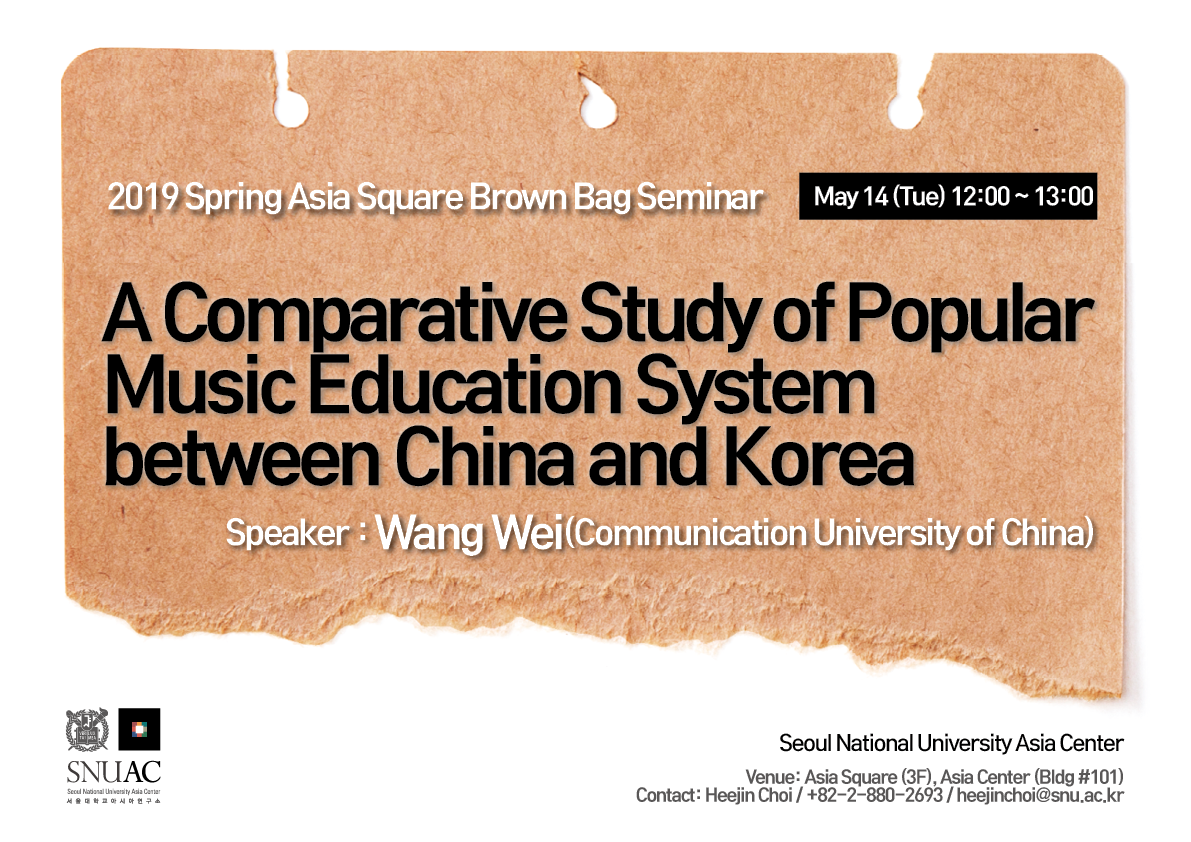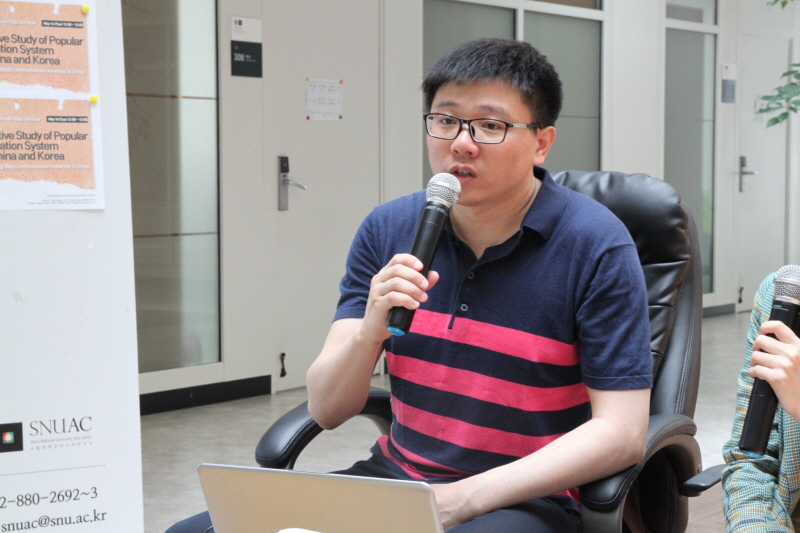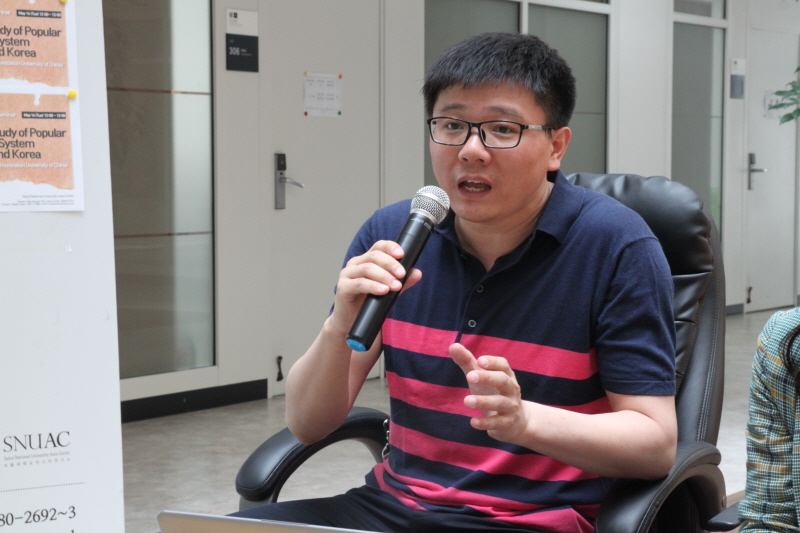참석자
Wang Wei
Communication University of China
On the basis of searching and reading relevant literature, conducting field investigation, this topic makes a comparative study of the popular music education system between China and Korea. Specifically, it is mainly carried out from the following aspects: the history of popular music education in China and Korea, the settings of popular music majors in China and Korea, the academic degree settings of popular music majors in China and Korea, the orientation (training objectives) of popular music majors in China and Korea, the curriculums settings of popular music majors in China and Korea, the teaching systems (teaching methods) of popular music majors in China and Korea, the teaching equipment of popular music majors in Korea and China, the teaching evaluation mechanism of popular music majors in China and Korea, the art practice (students) of popular music majors in China and Korea, the teachers of popular music majors in China and Korea, the scientific research (teachers) of popular music majors in China and Korea, the enrollment (students) of popular music majors in China and Korea, the employment (students) of popular music majors in China and Korea, the other aspects of popular music education system in China and Korea.
Speaker
Wang Wei, Male, Doctor of Musicology. Associate Research Fellow, Master Tutor, Member of the Doctoral Tutor Group, Institute of Art of Communication University of China. Researcher of Seoul National University Asia Center. Vice President of the Academy of Music Industry and Management, Vice Director of the Music Professional Committee, Head of the Department of Popular Music, Beijing institute of Performing Arts. Director of Popular Music Institute of China. Chairman of Education & Training Committee of Popular Music Institute of China. Deputy Secretary-general of Chinese Association of Music Communication. Director of the Convergence of Humanities, Social Science and Art’s Academy. Chairman of the Chinese Visiting Scholar Association in Korea. Expert Reviewer of Studies on Hong Kong and Macao (CSSCI Core Journal). Editorial Member of Korean Academic Journal of Future Vocational Education (Learned Periodical). Special Contributor of Music Communication (Learned Periodical). Special Contributor of Chinese Art Yearbook. Director of Fu Lin Music Studio of Naval Political Department of the Song and Dance Troupe. Member of China Literature and Art Critics Association. Member of Chinese Collegial Association for Visual Art. Member of Chinese Arts-Medicine Association. Member of Beijing Television Artists Association. Member of Beijing Association for Film and TV Art Studies. In addition, he was once a lecturer of popular music singing in Shenyang Conservatory of Music. He is mainly engaged in teaching and scientific research of popular music singing, sociology of music and communication of music.
He has been awarded the International Academic Research Contribution Award by the Korean Congress, as well as the second prize of the fourteenth CCTV national youth singer television grand prix in Liaoning Province (popular music singing group), the silver prize of the 2018 Beijing University Music Festival (Instructor), the third prize of the ninth young teachers’ teaching basic skills competition in Beijing colleges and universities, the third prize of “Danke Cup” excellent research achievement award of Beijing City in 2015, and other national, provincial, ministerial and other prizes. More than forty awards were awarded. He has published six works, such as Research on Popular Music Singing Style in China (1927-1979) and Research on Popular Music Singing Style in China (1980-2010), etc. He has published over 70 academic papers in CSSCI core journals or other Chinese and foreign journals, such as Journal of the Central Conservatory of Music, Modern Communication (Journal of Communication University of China), People’s Music, Huangzhong (Journal of Wuhan Conservatory of Music), Higher Education Development and Evaluation, Studies in Culture & Art, Urban Cultural Studies, Studies on Hong Kong and Macao, Journal of Hubei Minzu University (Philosophy and Social Sciences), Future Vocational Education (Korean learned periodical), etc. His representative academic papers include: The Setting of Popular Musicology, An Musicology Analysis of Li Ming-hui’s (The first Popular Singer in China) Singing Style, On Seth Rigg’ Pedagogy of Pop Vocal Music, Seth Riggs Pop Vocal Training Method, Anne Peckham’s Basic Training Method of Pop Vocal Music, Research Methodology of Popular Musicology, The Analysis of the Performing Style of the Songs in the Chinese Films of 1930s and 1940s, The application of “Close” Technology in Popular Music Singing, etc. He has presided over or participated in more than ten national and provincial and ministerial projects, and has presided over and completed such projects as A Comprehensive Study of the Setting of Popular Musicology, Research on the Teaching System of Music Communication, The Acoustic Interpretation of Timbre of the Singer and the Announcer and the Development of Its Testing Software, The History of Popular Music Singing in China. He has instructed more than 100 students to enter Conservatory of Music or University of Art at home and abroad, and has been invited to give nearly 100 academic lectures at universities and cultural institutions at home and abroad.
Review
올 해 6번째로 진행된 브라운백 세미나는 ‘중국과 한국 대중 음악 교육 시스템 비교 연구’ 라는 주제로 진행되었다. 왕웨이 교수는 주로 중국과 한국의 대중 음악 교육의 역사, 대중 음악 전공의 설정, 대중 음악의 교육 목표, 대중 음악학과의 커리큘럼 구성, 대중 음악 전공의 교수 평가 장치, 대중 음악의 미술 연습, 대중 음악 전공 교사, 대중 음악학과의 과학 연구, 음악 대학 등록 등에 대한 설명을 이어나갔다.
왕 웨이 교수에 따르면 중국 음악은 이론중심 위주의 수업으로 구성되며 발성법에 있어서 오페라처럼 강하게 소리를 내는 반면 한국은 대중적인 가요에 수업이 기반되어 있어 부드러운 소리를 내는 것이 특징이다. 또한 한국이 미국의 교육 방법에 기반을 두어 수업을 진행하는 반명 한국의 음악산업에 있어 ‘개방성’이 중국보다 훨씬 우위에 있어 ‘세계화’ 혹은 ‘유행화’ 하기에 더 적합한 환경이라 할 수 있다. 더불어 중국 음악 교육계는 아직 보수주의적인 면이 있어 해외 교재, 발성법 보다는 국내 교재, 발성법 위주로 수업이 구성되는 부분이 상당하다는 설명으로 강연은 마무리되었다.
Review






